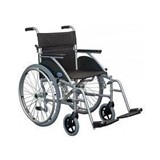The ASPREE (ASPirin in Reducing Events in the Elderly) study will test whether taking aspirin contributes to good health in the elderly, and help to determine if aspirin should be prescribed to all otherwise healthy people over 70 years of age.
ASPREE will recruit 19,000 healthy older people to participate in the trial - more than 16,000 in Australia and 3000 in the United States.
The study is led by researchers at Monash University in Melbourne and the Berman Center for Outcomes & Clinical Research in the US. The University of Adelaide is heading the South Australian node of the study.
More than 8000 Australians are currently enrolled in the study in the ACT, Tasmania and Victoria. ASPREE is now aiming for 1400 recruits from South Australia.
"Residents in South Australia who are over 70 years of age and in good health will be invited to take part in the study via a letter from their GP, which will be sent direct to their homes," Professor Nigel Stocks, Head of the Discipline of General Practice at the University of Adelaide, said.
"Those who choose to participate in the study will be randomly assigned to take either 100 mg of aspirin or a placebo (an inactive tablet) daily. They will undergo annual health checks for an average of five years," he said.
The Head of the Monash School of Public Health and Preventive Medicine, Professor John McNeil, who is the study's principal investigator in Australia, said the health and wellbeing of older Australians was at the centre of the study.
"We want to look at the potential of aspirin to improve the health of older Australians, something that is increasingly important as the population ages," Professor McNeil said.
"Doctors know that aspirin should help to prevent heart attacks and some forms of stroke, and research indicates that aspirin may also prevent mental decline. However, aspirin is also known to have side effects, such as increased bleeding, that may offset its benefits. ASPREE will provide the evidence to settle the question of whether aspirin's benefits outweigh the risks for older Australians."
Recruitment for the study will end in 2013, with the results available around 2017-2018.
The ASPREE study is being funded by the US National Institute on Aging (NIA), with funding support also received from Australia's National Health and Medical Research Council (NHMRC) and the Victorian Cancer Agency (VCA).
For more information about the ASPREE study, visit: www.aspree.org


-160x160-state_article-rel-cat.png)













